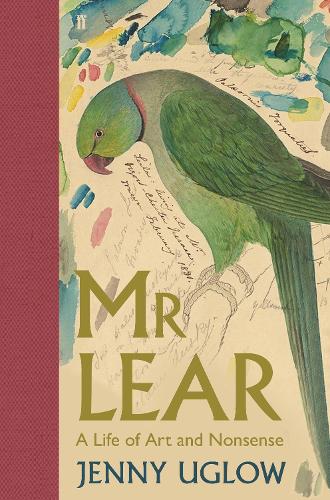
Mr Lear: A Life of Art and Nonsense
(Hardback, Main)
Available Formats
Publishing Details
Mr Lear: A Life of Art and Nonsense
By (Author) Jenny Uglow
Faber & Faber
Faber & Faber
25th October 2017
Main
United Kingdom
Classifications
General
Non Fiction
821.8
Long-listed for Baillie Gifford Prize 2017 (UK)
Physical Properties
Hardback
608
Width 160mm, Height 240mm, Spine 45mm
1260g
Description
Edward Lear's poems follow and break the rules. They abide by the logic of syntax, the linking of rhyme and the dance of rhythm, and these 'nonsenses' are full of joy - yet set against darkness. Where do these human-like animals and birds and these odd adventures - some gentle, some violent, some musical, some wild - come from His many drawings that accompany his verse are almost hyper-real, as if he wants to free the creatures from the page. They exist nowhere else in literature, springing only from Lear's imagination.
Lear lived all his life on the borders of rules and structures, of disciplines and desires. He vowed to ignore politics yet trembled with passionate sympathies. He depended on patrons and moved in establishment circles, yet he never belonged among them and mocked imperial attitudes. He loved men yet dreamed of marriage - but remained, it seems, celibate, wrapped in himself. Even in his family he was marginal, at once accepted and rejected. Surrounded by friends, he was alone.
If we follow him across land and sea - to Italy, Greece and Albania, to The Levant and Egypt and India - and to the borderlands of spirit and self, art and desire, can we see, in the end, if the nonsense makes sense This is what Jenny Uglow has set sail to find out.
Author Bio
Jenny Uglow 's books include prize-winning biographies of Elizabeth Gaskell, William Hogarth and Sarah Losh. The Lunar Men, published in 2002, was described by Richard Holmes as 'an extraordinarily gripping account', while Nature's Engraver: A Life of Thomas Bewick, won the National Arts Writers Award and A Gambling Man: Charles II and the Restoration was shortlisted for the Samuel Johnson Prize. Her most recent book is In These Times: Living in Britain through Napoleon's Wars, 1793-1815. She lives in Canterbury.
